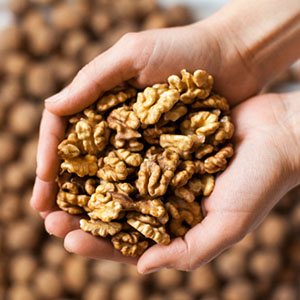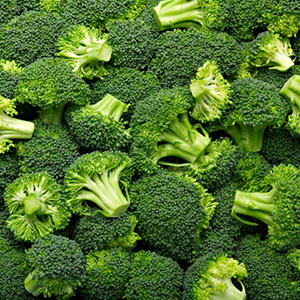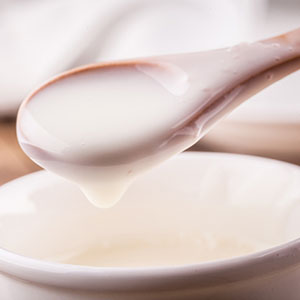By Jen Hartman, Registered Dietitian Nutritionist
The link is true. What we eat impacts our behavior and mood.
You may not realize that a healthy diet has been shown to improve brain function and decrease risk for depression. This means a diet rich in plant-based foods, complex carbohydrates, and lean proteins can keep depression, anxiety and stress at bay. Conversely, a diet high in simple sugars and processed foods can make symptoms worse.
This is because our body uses food as fuel. If we are providing poor-quality fuel, our body cannot and will not function efficiently or properly. On the contrary, when we provide our body with nutrient-rich foods, we are able to function at peak performance.
Walnuts
These little nuts pack a powerful nutritional punch. Walnuts are one of the best plant sources of omega-3 fatty acids. Omega 3s are essential for brain development and support overall brain health. An ounce of walnuts is also a good source of magnesium and iron.
Broccoli
Broccoli is a great source of magnesium. Magnesium deficiency has been linked to higher incidence of depression. Broccoli is also a super source of folic acid, which may help reduce stress.
Fish
Fatty fish such as tuna, salmon, mackerel, sardines or rainbow trout provide omega-3 fatty acids, which can influence serotonin levels. Increased serotonin levels can help prevent the blues.
Dark Chocolate
Yes! Dark chocolate can contribute to improving your mood and reducing stress. It provides antioxidants, which can increase serotonin and blood flow to the heart, and may help lower blood pressure. Keep in mind that good things come in small packages. Just an ounce a day is all that's needed. Choose a dark chocolate (with at least 60% cocoa), and keep it portion-controlled.
Whole Grains
Brown rice, quinoa, oatmeal and whole grain breads are complex carbohydrates, which provide the body with the right amount of energy. Whole grains prevent your blood sugar from spiking too quickly, which can contribute to inconsistent blood sugars, resulting in mood swings and decreased energy.
Yogurt or Kefir
Yogurt and kefir give you probiotics—good bacteria that are essential for a healthy gut. A healthy gut can improve your serotonin levels, resulting in a happier mind.
Coffee and Tea
Ah, the never-ending debate over whether tea or coffee is better. When it comes to improving mood, decreasing stress, and reducing anxiety, both are winners! Green tea provides antioxidants, which can boost the availability of dopamine in the brain, helping to stabilize and improve mood. Coffee has also been studied for its correlation to boost mood and reduce depression risks. Whichever you choose, it's best to drink them with little to no added sugars.
A note before you go: Magnesium deficiency, iron-deficiency anemia, inconsistent blood sugar levels, and vitamin D deficiency have all been studied for their correlation to depression, anxiety and stress. If you suffer from these, it might be helpful to talk with your physician to determine if nutrition deficiencies are part of the cause. Of course, this general information is not intended to diagnose or treat any medical condition or to replace your healthcare professional.
Stay Healthy with the Y
Let us partner with you to reach your healthy living goals! Check out more nutrition advice, workouts, and inspirational content.






